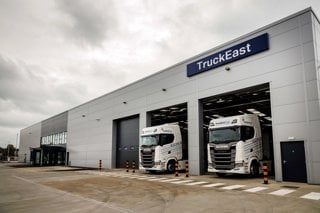Car dealers are in a state of confusion about the Worldwide Harmonised Light Vehicle Test Procedure (WLTP), according to new research by Manheim.
Its latest dealer sentiment survey revealed that more than a third of dealers (35%) are not aware of when WLTP comes in to force.
A further two thirds (61%) of dealers are not up-to-speed with the timetable for the roll out and are unclear on what the new testing means for new cars after the deadline.
Around half of those surveyed believe that WLTP is creating a supply shortage.
Manheim's Philip Nothard said: "The response to these questions is startling. With less than six weeks to go until the implementation of WLTP, that a third of dealers say they unaware of WLTP should be of grave concern to the government and manufacturers.
"In addition, almost two-thirds report being unaware of any timetable, a similar number are unclear about what it actually means to new car sales and just over half saying they're not getting clarity from the brands they represent.
"There's been much talk in the sector about confusion and low awareness levels and these responses suggest this is more than idle speculation."
All new vehicles homologated since September last year will have undergone the new testing procedure, designed to provide more realistic fuel economy and emissions figures that the outgoing New European Driving Cycle (NEDC).
From September 1 2018, all existing models on sale must have been re-tested.
The switch has led to confusion throughout the fleet industry, as cars tested under WLTP –then re-calculated back to an NEDC equivalent - are returning figures that are on average 10g/km higher than under the old test.
Fleet News editor-in-chief Stephen Briers branded the WLTP introduction as a “total mess”.
Nothard believes there will be a boom in registrations ahead of the September deadline as manufacturers race to register left-over models that have yet to face re-calibration.


















Login to comment
Comments
No comments have been made yet.